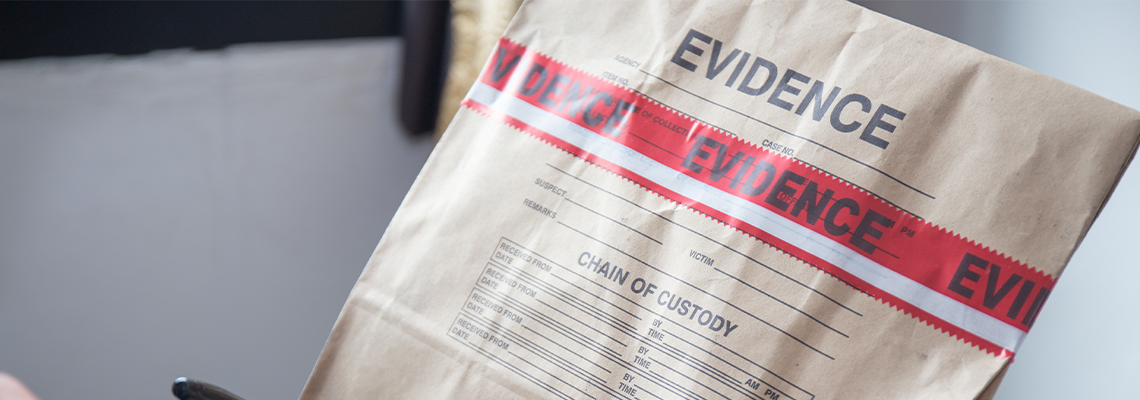
Understanding Evidence in a Criminal Trial
Being put on trial can be a terrifying experience, and being unfamiliar with court proceedings can add additional stress to your situation. An experienced criminal defense attorney can help you navigate all aspects of your trial, especially the procedures following arguing against the submission of evidence. If you’ve been charged with a crime in Kentucky, call us at Evan Taylor Law Office PSC in Owensboro. We are determined to help you fight for the best possible outcome of your trial.
If you’ve been charged with a crime in Kentucky, it’s important to understand how evidence can be used in a criminal trial.
What Is Evidence?
Evidence includes all materials relative to a criminal case. Some examples of evidence include witness statements, video footage, audio recordings, pictures, objects (for example, weapons, clothing, vehicles, etc.), and scientific data (such as blood test results). Evidence can also be demonstrative—for example, an expert witness might include charts to explain a concept to the judge or jury.
Direct vs. Circumstantial Evidence
The type of evidence used in a trial includes direct evidence and circumstantial evidence:
Direct evidence, such as eyewitness testimony of someone committing a robbery, functions as proof of fact in the case.
Circumstantial evidence, such as the presence of the robber’s fingerprints at the crime scene, is proof of fact from which the relevant fact can be inferred.
Either direct or circumstantial evidence alone can be used to convict, so it is important to know the nature of the evidence that the prosecution has against you and how it can affect the outcome of your case.
Relevance of the Evidence
The main question to ask when considering any piece of evidence is whether that evidence is needed to show an increased probability of a “material fact” of the case, a “material fact” being a fact that helps to prove or disprove any part of the crime. Any evidence deemed relevant is admissible in court. Your attorney can argue that a piece of evidence against you is not relevant—that is, that it does not help to prove or disprove any part of the crime. This is one way for your attorney to argue that the evidence is inadmissible, but there are other ways to argue for the inadmissibility of evidence.
What Evidence May Not Be Admissible?
Deciding what is admissible and not can be confusing. Because of this, it’s important that you work with a skilled criminal defense attorney, who will be able to advise you further about exceptions and argue against the admission of the evidence if your rights were breached.
Hearsay
“Hearsay” is any evidence in the form of a statement coming from outside the court setting. For example, if a first-person told a second person that they saw someone else robbing a store, the second person’s testimony would be hearsay if the first person is not available to be cross-examined in court. If the first person makes an eyewitness statement to the police but does not testify in court, their evidence will also become hearsay.
Exclusionary Rule
If the evidence against you was collected in a breach of your Fourth Amendment rights—for example, if your home was searched for weapons without a warrant—anything found during that search can be deemed inadmissible in court.
However, it is important to know that there is a federal exception to the exclusionary rule. This exception states that illegally obtained evidence (for example, evidence obtained from a warrant that turns out to be invalid) can be admissible if the Fourth Amendment breach was performed due to law enforcement error (for example, if a police officer had no reason to suspect that a warrant was invalid).
Helping You Get Clear Answers
At Evan Taylor Law Office PSC—serving Owensboro, Kentucky as well as Henderson, Hancock County, Ohio County, and McLean County—we will be here for you throughout your trial. As your criminal defense attorney, I bring more than two decades of experience as a trial lawyer to your case and will argue aggressively for your rights in court. Call us at Evan Taylor Law Office PSC today for a consultation.
